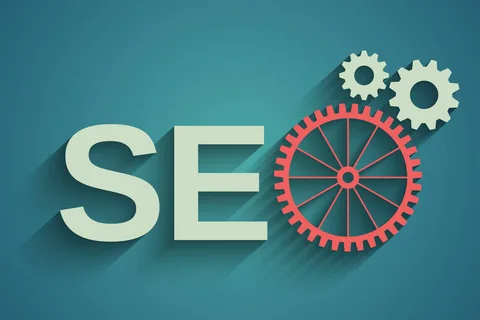In the age of constant connectivity, where consumers are online more than ever, digital marketing has emerged as an indispensable tool for businesses aiming to grow, reach new audiences, and boost their bottom line. From small businesses looking to expand their customer base to large corporations seeking to strengthen their brand presence, digital marketing offers endless opportunities to make meaningful connections with customers. In this article, we will delve into the world of digital marketing, highlighting its key components, advantages, and why it is essential for the future success of any business.
What is Digital Marketing?
Digital marketing agency refers to the use of digital channels and technologies to promote and advertise products or services. Unlike traditional marketing, which relies on methods like TV commercials, billboards, and print ads, digital marketing leverages platforms such as search engines, social media, email, and websites to engage with consumers. By employing a variety of digital strategies, businesses can effectively reach and influence their target audience, no matter where they are in the world.
Digital marketing isn’t just about having an online presence; it’s about utilizing the vast array of digital tools available to create a comprehensive strategy that attracts, engages, and converts prospects into loyal customers.
Key Components of Digital Marketing
Digital marketing is a multi-faceted discipline that incorporates various strategies to maximize reach and engagement. Below are the main components of digital marketing that every business should consider implementing:
1. Search Engine Optimization (SEO)
SEO is the process of optimizing a website to rank higher in search engine results, thereby increasing its visibility. The goal is to ensure that when potential customers search for specific keywords related to your business, your website appears on the first page of search engine results (preferably in the top positions). SEO includes optimizing the website’s structure, content, and technical aspects, as well as building backlinks to improve authority and trustworthiness. Ranking high in search engines means more organic traffic and, ultimately, more customers.
2. Content Marketing
Content marketing focuses on creating valuable and informative content to attract and engage your target audience. This content can take many forms, including blog posts, videos, infographics, white papers, and podcasts. By providing useful, relevant, and high-quality content, businesses can build credibility, increase brand awareness, and establish themselves as thought leaders in their industry. Content marketing helps nurture leads, build trust with your audience, and guide prospects through the buyer’s journey.
3. Social Media Marketing
Social media marketing involves using platforms like Facebook, Instagram, Twitter, LinkedIn, and TikTok to promote your products, engage with your audience, and drive traffic to your website. Social media allows businesses to foster two-way communication with customers, respond to inquiries, and showcase their brand personality. Social media campaigns can be both organic (through regular posts and interactions) and paid (through sponsored ads and promotions). With billions of active users across various platforms, social media marketing is an essential tool for brand growth.
4. Pay-Per-Click (PPC) Advertising
PPC advertising is a paid marketing strategy where businesses bid on keywords and pay for each click their ads receive. Platforms like Google Ads and Facebook Ads offer highly targeted PPC campaigns that enable businesses to reach potential customers based on specific criteria like location, age, interests, and behavior. PPC is an excellent way to generate immediate traffic and leads. It’s particularly beneficial for businesses looking for fast results and a targeted approach to drive conversions.
5. Email Marketing
Email marketing is one of the most powerful digital marketing strategies for building relationships with existing customers and nurturing leads. By sending personalized, relevant, and timely emails, businesses can keep customers informed about promotions, product launches, and company updates. Email marketing can also be automated, making it easier to send tailored messages based on user behavior, such as abandoned cart reminders or post-purchase follow-ups. With high ROI potential, email marketing is a key tool for customer retention and loyalty.
6. Influencer Marketing
Influencer marketing leverages the power of individuals with large and engaged social media followings to promote a business’s products or services. Influencers can create authentic content that resonates with their audience, helping brands build trust and credibility. Influencer marketing is especially effective in industries like fashion, beauty, health, and fitness. By partnering with the right influencers, businesses can tap into new customer segments and increase brand awareness.
7. Affiliate Marketing
Affiliate marketing is a performance-based strategy where businesses collaborate with affiliates (individuals or other businesses) to promote their products and services in exchange for a commission on sales or leads. Affiliates use their own platforms, such as websites or social media, to drive traffic and conversions. This cost-effective approach allows businesses to reach a wider audience without upfront investment, as they only pay for successful conversions.
The Benefits of Digital Marketing
The advantages of digital marketing are immense, offering businesses the opportunity to grow, engage with customers, and optimize their marketing efforts. Here are some key benefits of adopting digital marketing:
1. Global Reach
One of the most significant advantages of digital marketing is its ability to reach a global audience. With the internet connecting people worldwide, businesses can expand their reach beyond their local markets and access customers in virtually any part of the world. This opens up vast opportunities for growth, allowing businesses to scale their operations and tap into new markets.
2. Cost-Effectiveness
Compared to traditional marketing methods like TV ads or print media, digital marketing is more affordable and provides better ROI. For example, social media ads, content creation, and email campaigns can be executed with a relatively small budget. This makes digital marketing a valuable tool for small businesses or startups with limited marketing resources.
3. Real-Time Results and Analytics
Digital marketing offers the ability to track and measure the success of campaigns in real time. Platforms like Google Analytics, Facebook Insights, and email marketing software provide valuable data on customer behavior, engagement, and campaign performance. This data allows businesses to make informed decisions, optimize campaigns, and adjust strategies as needed to ensure maximum effectiveness.
4. Targeted Audience Segmentation
Digital marketing enables businesses to target their audience with precision. Whether through SEO, social media ads, or email marketing, businesses can tailor their message based on factors such as demographics, interests, behavior, location, and more. This means businesses can reach the right people with the right message, improving engagement and conversion rates.
5. Increased Customer Interaction
Digital marketing facilitates ongoing interaction with customers. Social media platforms, live chats, and email provide direct communication channels for businesses to respond to customer inquiries, address concerns, and offer support. This not only enhances the customer experience but also fosters brand loyalty, as customers feel heard and valued.
6. Personalization and Customization
Through digital marketing, businesses can create personalized experiences for their customers. Whether through targeted emails, personalized recommendations, or retargeted ads, businesses can cater their messaging to the individual preferences of their audience. Personalized experiences increase engagement and are more likely to result in conversions.
Why Digital Marketing is Essential for Business Growth
In today’s hyper-connected world, digital marketing is essential for business growth. As consumers increasingly turn to online channels for shopping, information, and entertainment, businesses must adapt to these changing preferences or risk falling behind. Digital marketing allows businesses to stay relevant, engage their audience on multiple platforms, and leverage data to refine their strategies.
Additionally, digital marketing offers businesses the ability to be agile and responsive. With quick access to data and insights, businesses can adjust their strategies on the fly, ensuring they stay ahead of market trends and customer demands. Furthermore, the ability to target specific customer segments and track results in real time means that marketing efforts are more efficient and effective.
The Future of Digital Marketing
The digital marketing landscape is constantly evolving, with new technologies and trends shaping the way businesses engage with customers. Some of the key trends to watch in the future include:
1. Artificial Intelligence (AI) and Automation
AI is transforming digital marketing by allowing businesses to automate repetitive tasks, such as customer support (via chatbots) or content recommendations. AI also helps businesses analyze customer data more efficiently, enabling them to deliver more personalized experiences.
2. Voice Search Optimization
With the rise of smart speakers and voice assistants, optimizing content for voice search is becoming increasingly important. Businesses will need to focus on conversational keywords and local SEO to ensure they are discoverable through voice-activated devices.
3. Video and Interactive Content
As consumers crave more dynamic and engaging content, businesses will continue to invest in video and interactive content. Live streaming, augmented reality (AR), and interactive ads are gaining traction as ways to engage customers and enhance the brand experience.
4. Data Privacy and Ethical Marketing
As data privacy concerns rise, businesses will need to prioritize transparent and ethical marketing practices. Ensuring that customer data is handled responsibly and in compliance with regulations like GDPR will be crucial for maintaining trust.
Conclusion
Digital marketing is no longer a luxury; it is a necessity for businesses that want to thrive in today’s competitive landscape. By embracing a multi-channel approach that includes SEO, social media marketing, content creation, email marketing, and more, businesses can effectively reach their target audience, build lasting relationships, and drive growth.
With its cost-effectiveness, measurable results, and ability to reach a global audience, digital marketing offers businesses the tools they need to succeed. As the digital landscape continues to evolve, businesses that stay ahead of the curve and embrace new trends and technologies will continue to reap the rewards of a well-executed digital marketing strategy.















Leave a Reply